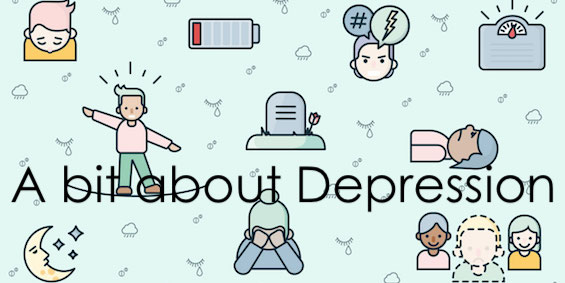Todays post, courtesy of Scott, is about Depression.
September 8 was R U OK day; a day organised to create awareness about mental health issues. So with that in mind, we have decided to share this short overview about depression.
Depression is among the most common of all mental health conditions, and impacts many Australians every day. While we all get sad, feel low or lacking in energy at times, people with depression experience these feelings more intensely and for longer.
What is Depression?
The Webster dictionary states that depression is defined a state of feeling sad: low spirits: or melancholy. More specifically it is a mood disorder that is marked by varying degrees of sadness, despair, and loneliness.
It is typically accompanied by inactivity, loss of concentration, feelings of guilt, social withdrawal, sleep disturbances, and sometimes there may be suicidal tendencies. But in reality it is far more complicated than that. It affects how you feel, think and behave, and there are physical symptoms as well.
Experts have been arguing for years over what causes depression and still there is no consensus.
So, what have I learnt from study, observation and experience?
All of our thoughts and emotions are the culmination of an incredible array of interactions of neurotransmitters. Things like serotonin, dopamine and nor epinephrine just to name a few. All of these chemicals are affected by another multitude of things like our vitamin and mineral intake, genetics, epigenetics and our environment.
This means that the food we eat and the drugs/medications we take can have a measurable physiological effect on our mood. Recently scientists are discovering more about the brain-gut connection and our moods.
Genetics and epigenetics means that our biological family and even where we live can also have an effect on our mood.
What simple things can we do?
The good news is that no matter what is going on now or whom your parents were; good mental health is in your hands.
Making time to talk with a mental health professional is a good start, however there are some additional things that can help. With some simple changes to your daily routine, big improvements can be made. This does not mean that things will get easy or that a good diet is a cure all, but it is a start and every little bit helps.
When it comes to nutrition, things can get a little more complicated and a consultation with a naturopath or nutritionist will be beneficial.
Generally the nutrients we need for good mental health include vitamin B6, tryptophan, zinc, iron and folate. What foods can I get these from you ask and what is tryptophan? That is a whole other subject and will be covered in another post.
For now consider making sure your diet is high in green leafy veg, bright coloured fruit and lean meats. Also, don’t forget to drink water; the recommended amount per person is .03 mls per kilo of body weight. It doesn’t sound like much but when you do the sums, you will be surprised at how much you should be drinking.
We hope this information is helpful,
Till the next post,
Live clean n Prosper


